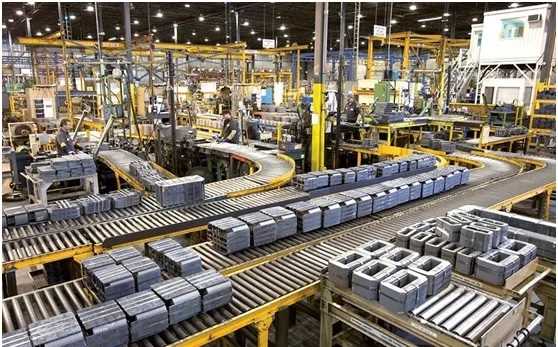
ZIMBABWE’S manufacturing sector is expected to grow at an average of 3,7% this year after government put in place various measures to stabilise the economy and create a conducive environment for business, to enable businesses to thrive.
Speaking during the ZimTrade 2022 Exporters’ Conference in Harare yesterday, Industry minister Sekai Nzenza said this has been achieved through value addition and beneficiation activities in the industrial, mining and agricultural sectors, resulting in the improvement of capacity utilisation of the manufacturing sector from 47 percent in 2020 to 66 percent in 2021.
“Cognisant of the prevailing macroeconomic environment, I am advised that the manufacturing sector is projected to grow at an average of 3,7 percent during 2023, on the back of value addition and beneficiation activities in the industrial, mining and agricultural sectors.
“A recent survey shows that the percentage of locally-produced goods on the supermarket shelves stands at 80 percent,” she said.
The manufacturing sector realised a 5,5 percent increase in exports to US$404 million in 2021.
Within the same period, overall capacity utilisation in the manufacturing sector rose to 56,25 percent, while capacity utilisation for large-scale manufacturing sector firms increased to 62,7% — the highest level recorded since 2012.
Minister of Finance Mthuli Ncube, who officially opened the conference on behalf of President Emmerson Mnangagwa, said Zimbabwe had set a target to achieve a 30 percent annual growth rate in the horticultural sector by 2030.
“I am very pleased to note the extraordinary performance of our country’s blueberries on the international market over the past year owing to their superior quality,” he said.
Ncube said government’s image building, as well as foreign engagement and re-engagement efforts are aimed at raising competitiveness of “our domestic goods, increases export demand, and attracts foreign investment to our country”.
“Accelerating the ongoing ease of doing business reforms to lower transaction costs actively supports our successful engagement and re-engagement with the global community,” he said.
“Indeed, as the world is recovering from a pandemic, with an imminent global recession, measures to improve product competitiveness have been instituted,” he said.
Ncube added that government is to come up with sustainable solutions for challenges that face Zimbabwean exporters.
Leave Comments